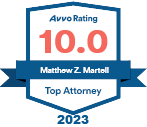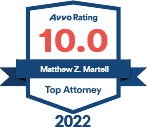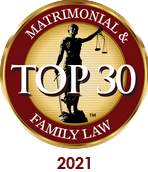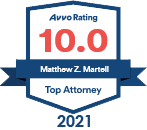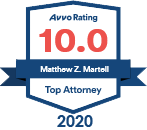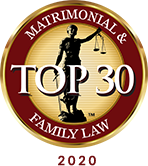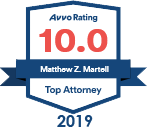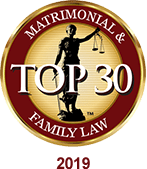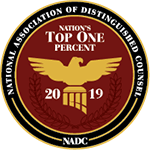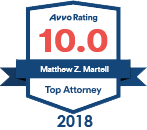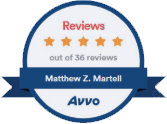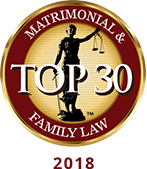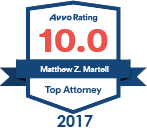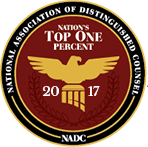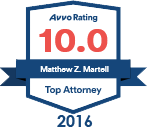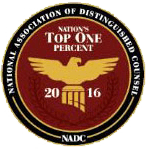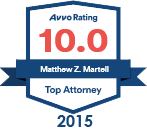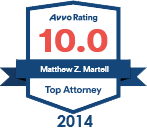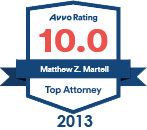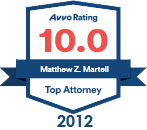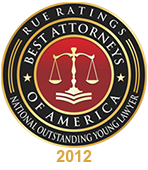Divorce Involving Professional Practices
Sarasota, Bradenton, Lakewood Ranch, and Venice, Florida Divorce Involving Professional Practices Attorney
Divorce is always a deeply personal experience, but when a professional practice is involved, everything gets more complicated—and more emotional. Whether you’re the one who built the business or the spouse who stood beside them every step of the way, you may feel like your financial future is suddenly on uncertain ground. These situations can be overwhelming, especially when you’re trying to figure out what’s fair, what you’re entitled to, and how to move forward. That’s where the experience of your divorce lawyer makes a real difference. At the Law Offices of Matthew Z. Martell, P.A., we understand that your case isn’t just about numbers—it’s about your life, your work, and what you’ve built. Our Sarasota, Bradenton, Lakewood Ranch, and Venice, Florida divorce attorney has handled complex divorces involving professional businesses such as medical practices, law firms, accounting firms, and dental offices in Florida. We know how to approach these cases with care, determination, and the legal skill they demand. Below, the Law Offices of Matthew Z. Martell, P.A explains what you need to know about Sarasota, Bradenton, Lakewood Ranch, and Venice, Florida divorces involving professional practices—including your legal rights, your options, and how working with a capable divorce attorney can help you protect what matters most.
What Is a Florida Divorce Involving a Professional Practice?
Definition of a Professional Practice — A professional practice is a business tied to a licensed field—like medicine, law, or accounting—where ownership depends on education, licensure, and reputation. Unlike typical businesses, you can’t transfer ownership to someone unlicensed, making it unique in divorce proceedings.
Why Professional Practices Make Divorce More Complicated — When one spouse owns a professional practice, it may qualify as a marital asset. Florida law requires fair division of marital property, including businesses gained or increased in value during the marriage, which complicates valuation and division.
What Florida Law Says About Property In Divorce — Florida Statutes § 61.075 outlines “equitable distribution,” requiring fair—not necessarily equal—division of assets and debts. A professional practice may be considered marital property if it grew or was started during the marriage, depending on several factors.
Who This Affects And Why It Matters — Whether you run the practice or supported it, your financial future may be impacted. Professionals want to protect what they’ve built; spouses want a fair share. These cases raise complex questions about ownership, value, and fairness.
Why It Matters Who Owns the Professional Practice
Types Of Ownership Structures — In Florida, a professional practice may be structured as a sole proprietorship, partnership, or professional association (PA/PLLC). These structures determine how the practice is owned and whether your entire business or just your share may be treated as a marital asset in divorce.
Why Ownership Impacts Divorce Outcomes — The structure affects how much of the business can be divided and how it’s valued. Under Florida Statutes § 61.075, sole proprietorships are often fully included in equitable distribution, while partnerships or corporations may involve only your share, limited by partnership agreements or share restrictions.
Goodwill And Its Role In Valuation — Florida law distinguishes between personal and enterprise goodwill. Only enterprise goodwill—value tied to the business itself—is divisible in divorce. Personal goodwill, based on your reputation and relationships, is not considered a marital asset.
Why This Affects Both Spouses — Understanding how the practice is owned and operated helps professionals protect their interests and ensures the other spouse receives a fair share when enterprise goodwill or business structure makes part of the value divisible.
Is the Professional Practice Considered Marital Property?
Florida’s Rules On Equitable Distribution — Under Florida Statutes § 61.075, courts divide marital assets equitably, not necessarily equally. A professional practice may qualify as marital property if it began or grew during the marriage—even if titled to one spouse.
When A Practice Becomes Marital Property — A business started before marriage is usually non-marital. But if it expanded, became more profitable, or involved sacrifices from the other spouse during the marriage, the increased value may be marital.
Commingling And Use Of Marital Funds — Using joint funds to support a business—even one started pre-marriage—can make part of it marital property. Commingling makes it difficult to separate ownership unless clear records prove otherwise.
How Courts Decide What’s Marital — Courts consider when the practice started, its growth during the marriage, any marital contributions, and whether a valid prenup or postnup excludes it. Absent an agreement, commingling or growth usually means partial division.
Why You Need To Know This — Understanding if your practice qualifies as marital property helps protect your interests or assert your rights in divorce. This issue can significantly affect property division outcomes.
How Professional Practices Are Valued in Divorce
Why Valuation Matters in Divorce — When a professional practice is considered a marital asset, the court has to figure out how much it’s worth so it can be fairly divided under Florida Statutes § 61.075. This isn’t always simple, especially when the practice’s value depends on the individual running it. The value matters whether you’re keeping the business or asking for a share of its worth. Without a proper valuation, it’s hard for either side to know what’s fair.
Common Valuation Methods in Florida Divorce Cases — There’s no single formula the court always uses, but most professional practices are valued using one or more of three approaches. The income approach looks at the business’s earning power and future profits. The market approach compares the business to other similar ones that have sold recently, although that can be tough with unique professional practices. The asset-based approach adds up all the business’s assets and subtracts liabilities. Each method has pros and cons, and different experts may reach different conclusions. Florida courts often rely on expert testimony to help decide which method fits best for the specific practice.
Goodwill and Its Dividing Line — Florida law distinguishes between personal goodwill and enterprise goodwill. Personal goodwill is tied to your reputation and personal efforts—it’s not a marital asset under Florida law. Enterprise goodwill comes from the business itself, like its brand, systems, or location, and can be divided. If the practice’s success is mainly because of your personal skills, the value might not be split. But if it runs like a company and doesn’t rely entirely on one person, enterprise goodwill may be included in the marital estate.
Why Expert Valuation Is Usually Required — Professional practices often need to be valued by a forensic accountant or business appraiser. These experts can review financial records, tax returns, client lists, and more to reach a reliable number. If both sides hire their own experts, there may be big differences in value. The court will then decide whose expert is more credible. Without expert help, it’s difficult to defend your position, especially if the other side presents solid evidence.
Disputes That Often Arise — Common arguments involve whether income is being hidden, whether personal goodwill is being overstated to avoid division, or whether business expenses are inflated to reduce value. If you’re the spouse who owns the practice, you might be accused of manipulating the numbers. If you’re the other spouse, you may worry that you’re being shortchanged. The valuation stage can become one of the most contested parts of a divorce involving a professional practice.
What This Means for You — If you’re the professional, the value of your practice could greatly affect what you owe or keep after divorce. If you’re the non-owner spouse, it may be your biggest asset in the case. Either way, an accurate valuation supported by expert evidence is crucial to protect your financial interests.
Can a Spouse Get Part of the Business or Just Money?
Division Without Co-Ownership — Florida courts usually avoid awarding any part of a professional practice to a spouse who isn’t licensed. Under Florida Statutes § 61.075, the entire business is typically given to the professional spouse, with a cash or asset offset awarded to the other.
Offsetting With Other Marital Assets — To balance the value, courts may award the non-owner spouse a larger share of other marital property. If assets are insufficient, installment payments may be ordered to ensure an equitable distribution.
Why Courts Avoid Joint Ownership — Joint ownership of a professional practice is generally not viable. Florida law discourages this when one spouse lacks a professional license and cannot legally or practically run the business.
Risk to the Non-Owner Spouse — Non-owning spouses must ensure their interest is valued and compensated in the divorce. Courts may use cash awards, property, or structured payments to protect their share.
Why This Approach Matters — This method allows the professional spouse to continue operations while ensuring the non-professional receives their fair share, preserving the integrity of the business and the fairness of the split.
What If You’re the Professional and You Want to Keep Your Practice
Keeping Control Without Losing Value — Florida courts generally award the professional practice to the spouse who runs it, while ensuring equitable distribution under Florida Statutes § 61.075. You may need to offset the value with other assets or payments but won’t have to give up ownership.
Using Experts to Support Your Case — A forensic accountant can help prove the value of personal vs. enterprise goodwill. Since Florida excludes personal goodwill from marital assets, expert input can prevent inflated valuations and help support a fair outcome.
Show Your Business Records Clearly — Strong financial documentation like tax returns and payroll reports helps the court accept your valuation. Gaps or inconsistencies may lead the court to favor your spouse’s numbers.
Planning for Payouts Without Business Disruption — Courts may allow installment payments or asset transfers to cover your spouse’s share. Work with legal and financial advisors to avoid threatening the stability of your practice.
Protecting the Practice Long-Term — Post-divorce conditions like limits on selling the business or income requirements may apply. Knowing this helps you negotiate terms that keep your practice intact.
Why Legal Strategy Matters — Your practice is both your legacy and livelihood. A divorce lawyer skilled in Florida divorce law can help protect it while meeting your legal obligations.
What If Your Spouse Owns the Practice and You’re Worried About Getting Your Fair Share
Getting a Clear Picture of the Business Value — If your spouse owns a professional practice, you’re entitled under Florida law to full financial disclosure. That includes tax filings, business records, and income and asset documentation. If anything seems missing, your lawyer can request it through discovery.
How to Spot Red Flags in Valuation — Watch for sudden income drops, unexplained expenses, or business changes. These may signal efforts to lower the business’s value during divorce. Raise any concerns with your attorney, who may recommend a forensic accountant.
Hiring Your Own Experts Can Make a Difference — You’re not bound to your spouse’s valuation. A financial expert can uncover hidden income or inflated deductions and testify on your behalf. Florida courts often compare expert findings from both sides.
Requesting a Fair Distribution — Florida Statutes § 61.075 requires fair division of assets. You probably won’t receive business ownership but may get a larger share of other assets or structured payments based on your marriage’s circumstances.
Knowing Your Role in the Business’s Success — Even if you weren’t involved directly, the court can consider non-financial contributions like childcare or supporting your spouse’s career. These factors can influence asset division under Florida law.
Why Legal Help Is Essential — A lawyer experienced in Florida divorce law can help uncover the practice’s real value and ensure you receive a fair share, whether through negotiation or trial.
Do Prenups or Postnups Protect a Professional Practice in Divorce
What Florida Law Says About Marital Agreements — Florida Statutes § 61.079 allows prenuptial agreements and postnuptial agreements to protect assets like professional practices. They must be in writing, signed by both spouses, and made voluntarily with full disclosure. Courts generally enforce them if these conditions are met.
What an Agreement Can Cover — A valid agreement can classify a professional practice as non-marital property, exclude it from equitable distribution, and waive claims to appreciation or income gained during the marriage.
Limitations of These Agreements — Agreements may be invalid if signed under pressure, without full financial disclosure, or if they’re grossly unfair. Courts assess fairness when signed and, in some cases, at divorce.
Why You Want a Lawyer for Divorce Involving a Sarasota, Bradenton, Lakewood Ranch, and Venice, Florida Professional Business
Local Knowledge Matters — Divorces involving Sarasota, Bradenton, Lakewood Ranch and Venice, Florida professional businesses benefit from attorneys who know local judges, experts, and courtroom patterns. This familiarity helps avoid pitfalls and strengthens your case.
Navigating Florida Law — Florida statutes like Florida Statutes § 61.075 and Florida Statutes § 61.079 govern divorce, but their application can differ locally. An experienced Sarasota, Bradenton, Lakewood Ranch, and Venice, Florida divorce attorney knows how to use these laws effectively when business valuation and asset division are at stake.
Managing High-Income and Asset Division Issues — Professional income often supports the family lifestyle, complicating financial splits. Florida courts follow equitable distribution under Florida Statutes § 61.075—not necessarily equal. Manatee County and Sarasota County judges may weigh assets like investment properties or retirement funds against practice value.
Coordinated Professional Support — Complex divorces often need input from appraisers or financial experts. A seasoned divorce lawyer will have connections to the right professionals for your case.
Strategic Representation — Whether you own the professional business or not, your divorce attorney should guide you through records, valuations, and expert testimony—and be ready to clearly present financial facts in court if needed.
What to Do Next if You’re Going Through a Divorce Involving a Professional Practice
If you’re facing a divorce involving a professional practice, act swiftly and strategically. Begin by collecting detailed financial records, including tax returns, profit-and-loss statements, and business agreements. Next, consult a divorce attorney with experience in business law—this ensures your legal team understands the complexities unique to professional practices. A lawyer may recommend experts such as valuation analysts or forensic accountants to uncover hidden income and accurately assess the business’s worth. Early action to protect your financial interests—like monitoring assets or limiting access—is critical. Don’t delay; proactive steps now can greatly influence the fairness and clarity of your final settlement.
Frequently Asked Questions About Sarasota, Bradenton, Lakewood Ranch, and Venice, Florida Divorce Involving a Professional Practice
How do I know if my spouse’s business counts as marital property in our divorce?
If the professional practice was started or grew during your marriage, it may be considered marital property under Florida law. Even if it’s only in your spouse’s name, you may still be entitled to part of its value.
Can I get a share of my spouse’s professional practice even if I’m not licensed?
You won’t get ownership in the business, but the court can award you a portion of its value through cash, assets, or payments. Florida courts don’t give control of licensed practices to non-licensed spouses.
What’s the process for figuring out what a professional practice is worth?
Usually, a forensic accountant or business valuation expert will review the practice’s income, assets, debts, and goodwill. This valuation helps the court decide how much of the business’s value is subject to division.
Does my prenup protect my professional practice in a divorce?
If your prenuptial agreement was validly signed under Florida Statutes § 61.079, and clearly states that your practice is excluded from marital property, it may protect it. A court will still review its fairness and enforceability.
What if my spouse is hiding income from the business during our divorce?
Your divorce lawyer can request financial records through discovery, and a forensic accountant can investigate signs of hidden income. Courts take this seriously, especially if it affects the value of marital property or child/spousal support.
Can I get alimony if my spouse owns a successful practice?
Yes, Florida courts look at income and need when awarding alimony. If your spouse earns much more than you do from their business, and you need financial support, the court may award alimony based on several statutory factors.
What if the business started before we got married?
Any increase in the value of the business during the marriage could still be marital property, especially if joint funds or efforts contributed to its growth. Only the pre-marriage value is generally considered non-marital.
How long does it take to settle a divorce involving a professional practice?
These cases often take longer than average divorces because of business valuations, expert reports, and financial disclosures. Depending on complexity, it could take several months to over three years to reach a final resolution.
What documents should I collect if my spouse owns a professional practice?
Gather tax returns, bank statements, profit and loss reports, payroll records, and any business-related agreements. These documents can help your lawyer and financial experts assess the value of the business and uncover hidden income.
Do I need a special type of lawyer for this kind of divorce?
Yes. Divorces involving professional practices are complex. You need a Sarasota, Bradenton, Lakewood Ranch, and Venice, Florida divorce attorney with experience in business valuation, forensic accounting, and Florida equitable distribution laws to protect your financial interests.
Sarasota, Bradenton, Lakewood Ranch and Venice, Florida Divorce Lawyer for Professionals
If you’re a working professional facing divorce—whether you’re in medicine, law, dentistry, accounting, engineering, or another demanding field—you’re likely juggling more than just the end of a marriage. You may be dealing with long hours, complex compensation packages, or the risk of your career being pulled into the courtroom. At Law Offices of Matthew Z. Martell, P.A., we represent professionals across Manatee County and Sarasota County who need practical, strategic legal help during divorce. Our trusted and experienced divorce attorney understands the pressures you face and the importance of protecting your time, your finances, and your future. We take the burden off your shoulders so you can stay focused on your career while we focus on your divorce case. If you’re a doctor, dentist, accountant, lawyer, or other professional facing divorce in Sarasota, contact Law Offices of Matthew Z. Martell, P.A. by calling (941) 556-7020 or contacting us online for a free consultation.



